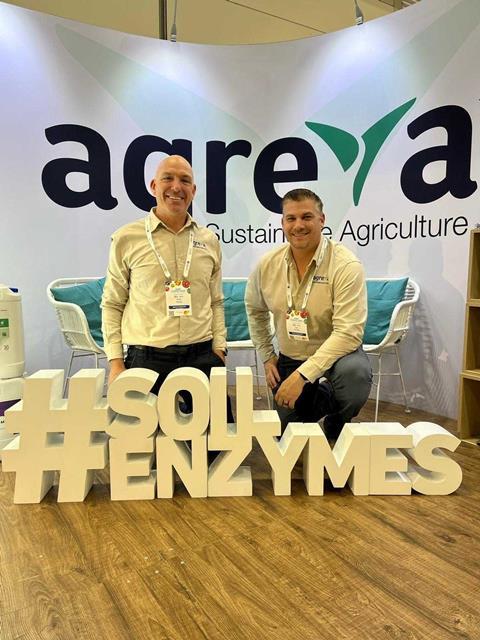Growers encouraged to think about the importance of soil health and explore sustainable agricultural solutions
Australian company Agreva Sustainable Agriculture – a fully owned subsidiary of the Muir Group – has used World Environment Day on Wednesday 5 June as a platform to remind growers to think about their soils, highlighting how healthy soil underpins crop quality and yield.

The theme for this year’s World Environment Day is land restoration, desertification and drought resilience under the slogan ‘Our land. Our future. We are #GenerationRestoration’.
Agreva general manager, Danny Thornton said the day was a great reminder of the importance of good soil health.
“Without good soil health, we are behind the eight ball from the start.
“It is important that we get the most from preharvest applications, for better postharvest outcomes on production factors like quality, fruit size, grain yield, overall tonnages – all the things consumers want from growers.
“Within our portfolio, the inclusion of products with active ingredients obtained from nature can help shift the dial on how our soils behave and can be enhanced.”
Thornton encouraged growers to use the day as a prompt to think about their own crop challenges and the solutions that are available to address them.
He said the trend toward the use of actives derived from nature is clear, with all major R&D companies investing in new technologies for improved soil structure, plant growth and disease management.
“The options are there, and they’re developing. Part of what we’re doing is scouring the globe to try and find the best options,” Thornton told Produce Plus.
“We’ve been pretty successful in getting some of these overseas companies to look at Australia and to look at registering products which is important because we need the solutions for growers for the future.”
Thornton said different bio-synthetic products have different benefits, depending on crop conditions and what the grower is trying to achieve and a full portfolio approach is important.
“For example, the inclusion of a degrading enzyme to help breakdown stubble more effectively can lead to improved soil organic matter and nutrient cycling, while also giving less potential for disease to grow on the stubble. It also improves trafficability at sowing and helps maximise control from herbicide applications,” Thornton explained.
“Likewise, some Agreva products enhance the effect of other inputs such as fertiliser and agri-chemical applications.
“The key is to find the right solution for your needs, depending on your local environment and the crops you’re growing.”
Thornton said strong results are being demonstrated with the use of microbials and next-gen bio-synthetic solutions, pointing to the Almond Centre for Excellence Orchard at Loxton which has trialled Agreva soil enzyme technology with strong trial results.
“We conducted a three-year trial of Nucleon – a liquid enzyme additive that increases the availability of water and nutrients to plant roots and improves native microbial populations – on five-to-seven-year-old Nonpareil almond trees,” he explained.
“Over the period, the average cumulative yield increased by 24.6 per cent for treated trees versus control, delivering a significant return on investment of more than 23:1.
“These kinds of results highlight the need to focus on soil health and resilience, ensuring all farmers have the tools available to protect and enhance their growing environments.
“It is not only good for the long-term sustainability of our farms, but can deliver quantifiable crop and financial performance benefits for farmers,” he added.
“Growers willing to modernise their production systems with a view to becoming more sustainable will be best-positioned to meet the challenges and opportunities of the future.”



